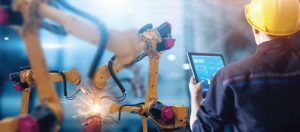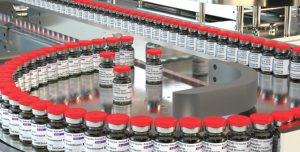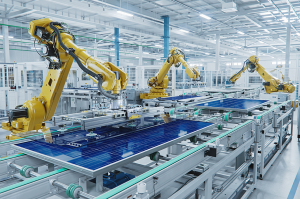Smart Factories: Enhancing Efficiency in Mass Production
The manufacturing sector is at a critical crossroads, shaped by evolving market demands, intensifying competition, and the rapid pace of technological advancement. Efficiency in mass production is no longer optional—it’s a necessity. Manufacturers must maintain profitability while exceeding customer expectations. Enter smart factory automation: a revolutionary approach integrating advanced technologies to address the complexities of modern manufacturing.
By incorporating artificial intelligence (AI), industrial IoT (IIoT), and cutting-edge smart manufacturing technology, businesses can adapt to ever-changing demands while ensuring operational excellence and sustainability. Smart factories represent the future—transforming manufacturing processes into efficient, intelligent, and adaptive systems.
From Traditional to Smart Manufacturing
The journey from traditional manufacturing to smart production systems marks a groundbreaking shift in industrial operations. From the early days of mechanical production and assembly lines to the rise of electrical power and basic automation, manufacturing has evolved dramatically. Today, in the Factory 4.0 era, advanced cyber-physical systems and IIoT set new benchmarks for excellence.
This transformation is driven by several factors:
- Market Demands: Modern customers require production flexibility and customisation.
- Technological Advancements: Innovations in AI, sensor technology, and connectivity make smart manufacturing practical.
- Global Competition: Companies must embrace lean manufacturing to maintain an edge.
Smart production systems leverage IIoT and cyber-physical systems to ensure seamless communication between machines, processes, and humans. This integration minimises waste, streamlines workflows, and enhances efficiency. For instance, businesses adopting smart factories have reported an average 12% increase in production output over three years—an undeniable testament to the transformative power of AI in manufacturing.
Core Components of Smart Factories
Smart factories combine various technologies to create intelligent production environments.
- Industrial IoT (IIoT): Forms the backbone, connecting machines and systems through advanced sensor networks.
- Artificial Intelligence (AI): Processes data to optimise operations and predict maintenance needs.
- Advanced Robotics: Equipped with AI, these robots perform complex tasks with adaptability and precision.
- Digital Twins: Virtual replicas of physical systems that allow simulation and optimisation before real-world implementation.
These technologies significantly promote sustainability by reducing energy consumption and operational costs. For example, smart manufacturing systems can decrease energy usage by up to 25% while maintaining high-quality production.
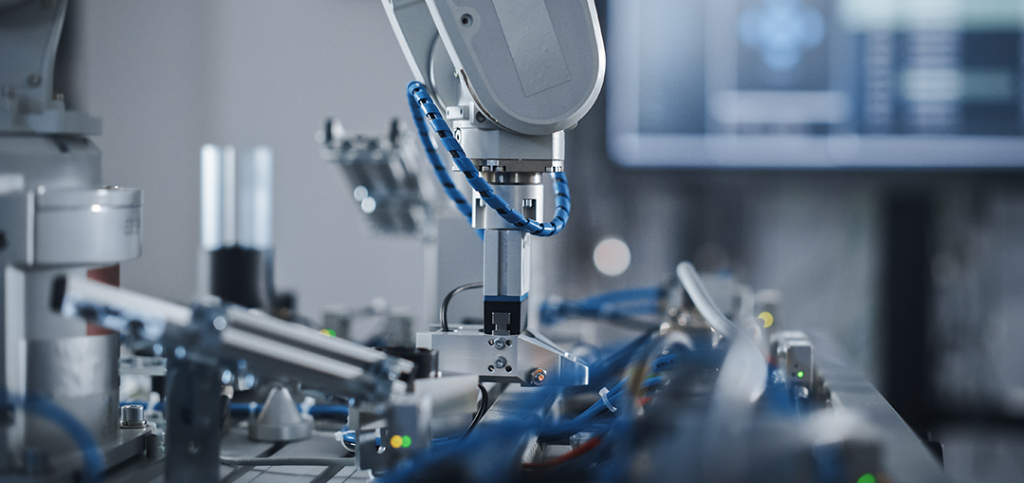
How Smart Manufacturing Technology Transforms Mass Production
Smart manufacturing delivers impactful capabilities across several areas:
- 1) Integration of Advanced Technologies
- IIoT: Enables seamless machine-to-machine communication.
- AI Algorithms: Optimise production schedules and quality control processes.
- Robotics: Perform tasks with precision, reducing errors and speeding up production.
- 2) Real-Time Data Utilisation
- Predictive maintenance reduces downtime.
- AI-powered quality control ensures consistent product standards.
- Supply chain analytics improve inventory and reduce lead times.
- 3) Sustainability and Workforce Development
- Energy management systems optimise resource consumption.
- Digital training programs upskill workers for enhanced human-machine collaboration.
- Lean manufacturing techniques reduce waste, ensuring eco-friendly production practices.
Economic Impact of Factory 4.0
Factory 4.0 is reshaping manufacturing economics, with the global market for smart technologies projected to hit $384.8 billion by 2025. By streamlining processes, these technologies improve factory capacity utilisation by up to 10%, ensuring manufacturers remain competitive and resilient.
The collaboration of skilled workers and intelligent systems is crucial in unlocking Factory 4.0’s full potential. This synergy fosters innovation, sustains growth, and builds a robust competitive edge.
Real-World Success Stories
- 1) Siemens’ Electronics Works Amberg (EWA), Germany
- Implementation: Cyber-physical systems since the 1980s.
- Outcomes: Enhanced efficiency through phased integration.
- 2) Schneider Electric’s Le Vaudreuil Factory, France
- Implementation: Comprehensive smart factory systems since 2012.
- Outcomes: 25% energy reduction, 20% productivity boost.
- 3) Bosch’s Reutlingen Plant, Germany
- Implementation: IIoT platform with 10,000+ sensors.
- Outcomes: Improved operational efficiency with real-time analytics.
- 3) Tesla Gigafactory, Berlin, Germany
- Implementation: State-of-the-art AI-driven automation.
- Outcomes: Production target of 500,000 vehicles annually.
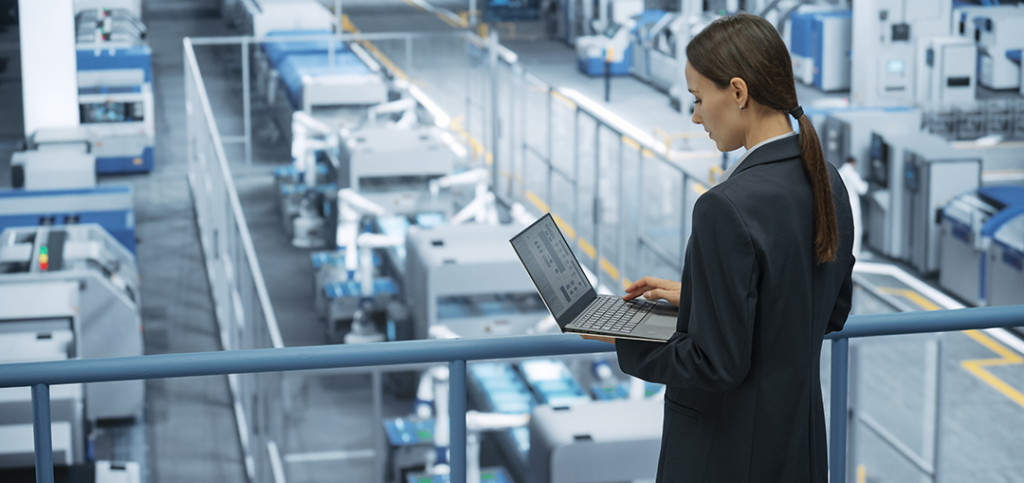
Challenges and Future Trends
Adopting smart factory solutions isn’t without challenges:
- Integrating operational and smart technologies requires strategic planning.
- Cybersecurity concerns must be addressed due to increased system connectivity.
- Transitioning from traditional methods to Factory 4.0 demands a robust roadmap.
Emerging trends include:
- Augmented reality for maintenance and training.
- Enhanced machine learning for optimisation.
- Sustainable manufacturing practices with AI-driven resource utilisation.
Conclusion
Smart factories are redefining mass production, offering unparalleled improvements in efficiency, quality, and sustainability. By integrating IIoT, AI, and advanced robotics, manufacturers can future-proof operations and adapt to evolving market demands.
Motherson Technology Services is a trusted partner in this transformation, providing tailored solutions to navigate the complexities of smart manufacturing. From assessment to implementation, our expertise ensures success in achieving digital excellence.
About the Author:

Santosh Mishra, an accomplished technology leader with over 20 years of experience, specializes in leveraging innovation to address key business challenges in the manufacturing sector. As the head of IoT and Automation at MTSL, he drives strategic initiatives for digital transformation and smart manufacturing. His expertise lies in enhancing operational efficiency, eliminating non-value-added processes, and delivering actionable insights through real-time data analytics. By integrating machines, PLCs, ERP, MES, IoT, and advanced automation, he has successfully scaled digital transformation initiatives from proof of concept to enterprise-wide deployments across discrete and process manufacturing industries worldwide.

 January 15, 2025
January 15, 2025 Santosh Mishra
Santosh Mishra




























